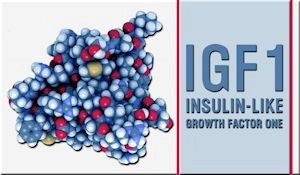Introduction
Testosterone Cypionate, a widely used anabolic steroid, has been traditionally recognized for its role in enhancing muscle mass and strength among American males. However, its influence extends beyond muscle development, potentially impacting vital physiological processes such as bone marrow function and hematopoiesis. This article delves into the effects of Testosterone Cypionate on blood cell production and turnover, shedding light on its implications for overall health and well-being.
Understanding Testosterone Cypionate and Its Mechanism
Testosterone Cypionate is a synthetic derivative of the naturally occurring hormone testosterone. It is administered through intramuscular injections and is slowly released into the bloodstream, providing a sustained increase in testosterone levels. This steroid is often used to treat conditions such as hypogonadism, where the body fails to produce sufficient testosterone. Beyond its therapeutic applications, it is also popular among athletes and bodybuilders for its performance-enhancing effects.
The Role of Bone Marrow in Hematopoiesis
Bone marrow is a crucial component of the human body, responsible for the production of blood cells through a process known as hematopoiesis. This process involves the generation of red blood cells, white blood cells, and platelets, all of which are essential for maintaining health and combating diseases. The bone marrow's ability to produce these cells efficiently is influenced by various factors, including hormonal regulation.
Testosterone Cypionate's Influence on Bone Marrow Function
Recent studies have begun to explore the effects of Testosterone Cypionate on bone marrow function and hematopoiesis. Research indicates that testosterone can stimulate the proliferation of hematopoietic stem cells, which are the precursors to all blood cells. This stimulation may lead to an increase in the production of red blood cells, a phenomenon known as erythropoiesis. Enhanced erythropoiesis can improve oxygen delivery to muscles and other tissues, potentially enhancing physical performance.
Impact on Red Blood Cell Production and Turnover
The administration of Testosterone Cypionate has been associated with an increase in hematocrit levels, which is the percentage of blood volume occupied by red blood cells. Elevated hematocrit levels can be beneficial for endurance and physical performance but may also pose risks such as increased blood viscosity and the potential for thrombosis. Therefore, it is crucial for individuals using Testosterone Cypionate to monitor their hematocrit levels and consult healthcare professionals regularly.
Effects on White Blood Cells and Platelets
While the primary focus of research has been on red blood cell production, Testosterone Cypionate may also influence the production of white blood cells and platelets. White blood cells are essential for immune function, and any alterations in their production could impact an individual's ability to fight infections. Similarly, changes in platelet production could affect blood clotting and the risk of bleeding disorders. Further studies are needed to fully understand these effects and their implications for health.
Clinical Implications and Future Research Directions
The findings on Testosterone Cypionate's effects on bone marrow function and hematopoiesis have significant clinical implications. Healthcare providers must be aware of these effects when prescribing this steroid, particularly to American males who may be using it for both therapeutic and non-therapeutic purposes. Future research should focus on long-term studies to assess the safety and efficacy of Testosterone Cypionate, as well as its impact on other physiological systems.
Conclusion
Testosterone Cypionate's influence on bone marrow function and hematopoiesis is a critical area of study, particularly for American males who frequently use this steroid. While it offers potential benefits in terms of increased blood cell production, it also poses risks that must be carefully managed. As research continues to evolve, a deeper understanding of these effects will enable healthcare professionals to better guide their patients and ensure their safety and well-being.
Contact Us For A Fast And Professional Response

- Testosterone Cypionate: Benefits, Risks, and Management for Aging American Men [Last Updated On: March 15th, 2025] [Originally Added On: March 15th, 2025]
- Navigating Insurance for Testosterone Cypionate Therapy: A Comprehensive Guide for American Males [Last Updated On: March 16th, 2025] [Originally Added On: March 16th, 2025]
- Testosterone Cypionate: Managing Chronic Conditions in American Men [Last Updated On: March 17th, 2025] [Originally Added On: March 17th, 2025]
- Testosterone Cypionate Injection Guide: Preparation, Administration, and Post-Care for TRT [Last Updated On: March 18th, 2025] [Originally Added On: March 18th, 2025]
- Testosterone Cypionate Stigma: Impact and Solutions for American Males [Last Updated On: March 19th, 2025] [Originally Added On: March 19th, 2025]
- Testosterone Cypionate Therapy: Costs, Coverage, and Cost-Saving Strategies for American Men [Last Updated On: March 19th, 2025] [Originally Added On: March 19th, 2025]
- Testosterone Cypionate's Impact on Sleep Patterns in American Males: A Comprehensive Analysis [Last Updated On: March 20th, 2025] [Originally Added On: March 20th, 2025]
- Testosterone Cypionate's Impact on Mental Clarity: American Men's Experiences and Insights [Last Updated On: March 20th, 2025] [Originally Added On: March 20th, 2025]
- Testosterone Cypionate: Impacts on Prostate Health and Clinical Guidelines for American Men [Last Updated On: March 21st, 2025] [Originally Added On: March 21st, 2025]
- Testosterone Cypionate: Benefits and Risks for American Men's Health [Last Updated On: March 21st, 2025] [Originally Added On: March 21st, 2025]
- Testosterone Cypionate: Impacts on Skin Health and Management Strategies for American Men [Last Updated On: March 21st, 2025] [Originally Added On: March 21st, 2025]
- Testosterone Cypionate Therapy: Monitoring and Managing Levels for American Men's Health [Last Updated On: March 21st, 2025] [Originally Added On: March 21st, 2025]
- Managing Testosterone Cypionate Side Effects: A Guide for American Men [Last Updated On: March 22nd, 2025] [Originally Added On: March 22nd, 2025]
- Testosterone Cypionate: Benefits and Considerations for Weight Management in American Men [Last Updated On: March 22nd, 2025] [Originally Added On: March 22nd, 2025]
- Testosterone Cypionate: Impacts on Joint Health in American Men [Last Updated On: March 22nd, 2025] [Originally Added On: March 22nd, 2025]
- Testosterone Cypionate: Effects on Blood Pressure and Cardiovascular Health in Men [Last Updated On: March 22nd, 2025] [Originally Added On: March 22nd, 2025]
- Testosterone Cypionate: Benefits, Risks, and Safety Monitoring for American Males [Last Updated On: March 23rd, 2025] [Originally Added On: March 23rd, 2025]
- Testosterone Cypionate: Dispelling Myths and Clarifying Facts for American Men [Last Updated On: March 23rd, 2025] [Originally Added On: March 23rd, 2025]
- Testosterone Cypionate's Impact on Liver Health in American Males: Risks and Monitoring [Last Updated On: March 23rd, 2025] [Originally Added On: March 23rd, 2025]
- Testosterone Cypionate: Benefits, Risks, and Safe Usage for American Men [Last Updated On: March 23rd, 2025] [Originally Added On: March 23rd, 2025]
- Testosterone Cypionate: Potential Benefits and Risks in Diabetes Management for American Males [Last Updated On: March 23rd, 2025] [Originally Added On: March 23rd, 2025]
- Testosterone Cypionate: Enhancing Body Composition in American Men [Last Updated On: March 23rd, 2025] [Originally Added On: March 23rd, 2025]
- Testosterone Cypionate: A Promising Treatment for Depression in American Males with Low Testosterone [Last Updated On: March 23rd, 2025] [Originally Added On: March 23rd, 2025]
- Testosterone Cypionate and Hair Loss: Risks and Management Strategies for American Men [Last Updated On: March 24th, 2025] [Originally Added On: March 24th, 2025]
- Testosterone Cypionate: Enhancing Libido in American Males with Low Testosterone [Last Updated On: March 24th, 2025] [Originally Added On: March 24th, 2025]
- Testosterone Cypionate: Enhancing Emotional Well-being in American Males [Last Updated On: March 24th, 2025] [Originally Added On: March 24th, 2025]
- Testosterone Cypionate's Impact on Lung Function in American Men: Current Insights [Last Updated On: March 24th, 2025] [Originally Added On: March 24th, 2025]
- Testosterone Cypionate: A Promising Treatment for Osteoporosis in American Males [Last Updated On: March 25th, 2025] [Originally Added On: March 25th, 2025]
- Testosterone Cypionate: A Promising Treatment for Autoimmune Disorders in American Men [Last Updated On: March 25th, 2025] [Originally Added On: March 25th, 2025]
- Testosterone Cypionate: Essential Hormone Therapy for Transgender Men's Transition [Last Updated On: March 25th, 2025] [Originally Added On: March 25th, 2025]
- Testosterone Cypionate: Enhancing Cognitive Function in American Men [Last Updated On: March 25th, 2025] [Originally Added On: March 25th, 2025]
- Testosterone Cypionate's Impact on Cholesterol Levels in American Males: A Comprehensive Analysis [Last Updated On: March 25th, 2025] [Originally Added On: March 25th, 2025]
- Testosterone Cypionate's Impact on Hearing in American Men: A Comprehensive Review [Last Updated On: March 25th, 2025] [Originally Added On: March 25th, 2025]
- Testosterone Cypionate: Enhancing Injury Recovery in American Males [Last Updated On: March 26th, 2025] [Originally Added On: March 26th, 2025]
- Testosterone Cypionate's Impact on Immune Function in American Males: Benefits and Risks [Last Updated On: March 26th, 2025] [Originally Added On: March 26th, 2025]
- Testosterone Cypionate's Impact on Red Blood Cell Production in American Men on TRT [Last Updated On: March 26th, 2025] [Originally Added On: March 26th, 2025]
- Testosterone Cypionate's Impact on Kidney Health in American Men: Monitoring and Management [Last Updated On: March 26th, 2025] [Originally Added On: March 26th, 2025]
- Testosterone Cypionate: Boosting Energy Levels in American Men [Last Updated On: March 26th, 2025] [Originally Added On: March 26th, 2025]
- Testosterone Cypionate's Impact on Mental Health in American Men: Benefits and Risks [Last Updated On: March 26th, 2025] [Originally Added On: March 26th, 2025]
- Testosterone Cypionate: A Promising Treatment for Chronic Fatigue in American Males [Last Updated On: March 26th, 2025] [Originally Added On: March 26th, 2025]
- Testosterone Cypionate: A Potential New Therapy for Allergies in American Males [Last Updated On: March 26th, 2025] [Originally Added On: March 26th, 2025]
- Testosterone Cypionate's Impact on Digestive Health in American Men: An Emerging Insight [Last Updated On: March 26th, 2025] [Originally Added On: March 26th, 2025]
- Testosterone Cypionate and Male Pattern Baldness: Risks and Management Strategies for American Men [Last Updated On: March 26th, 2025] [Originally Added On: March 26th, 2025]
- Legal Status and Regulations of Testosterone Cypionate in the U.S. [Last Updated On: March 27th, 2025] [Originally Added On: March 27th, 2025]
- Testosterone Cypionate's Impact on Dental Health: Risks and Management Strategies for American Men [Last Updated On: March 27th, 2025] [Originally Added On: March 27th, 2025]
- Testosterone Cypionate's Impact on American Men's Nervous System: Benefits and Risks [Last Updated On: March 27th, 2025] [Originally Added On: March 27th, 2025]
- Testosterone Cypionate: Cardiovascular Impacts and Safe Use in American Men [Last Updated On: March 27th, 2025] [Originally Added On: March 27th, 2025]
- Testosterone Cypionate's Impact on Vision Health in American Men: Emerging Research [Last Updated On: March 28th, 2025] [Originally Added On: March 28th, 2025]
- Testosterone Cypionate's Impact on Thyroid Function in American Males: A Review [Last Updated On: March 29th, 2025] [Originally Added On: March 29th, 2025]
- Testosterone Cypionate's Impact on Eye Health in American Men: A Comprehensive Review [Last Updated On: March 30th, 2025] [Originally Added On: March 30th, 2025]
- Testosterone Cypionate: A Promising Treatment for Skin Conditions in American Males [Last Updated On: March 30th, 2025] [Originally Added On: March 30th, 2025]
- Testosterone Cypionate: A Promising Non-Opioid Pain Relief Option for American Males [Last Updated On: March 30th, 2025] [Originally Added On: March 30th, 2025]
- Testosterone Cypionate: A Novel Treatment for Respiratory Conditions in American Men [Last Updated On: March 31st, 2025] [Originally Added On: March 31st, 2025]
- Testosterone Cypionate's Impact on Male Fertility: Risks, Reversibility, and Alternatives [Last Updated On: April 1st, 2025] [Originally Added On: April 1st, 2025]
- Testosterone Cypionate: Effects, Benefits, and Risks for American Men's Endocrine Health [Last Updated On: April 2nd, 2025] [Originally Added On: April 2nd, 2025]
- Testosterone Cypionate: Effects on Urinary System and Management in American Men [Last Updated On: April 3rd, 2025] [Originally Added On: April 3rd, 2025]
- Testosterone Cypionate's Impact on Immune Function in American Men: A Comprehensive Review [Last Updated On: April 6th, 2025] [Originally Added On: April 6th, 2025]
- Testosterone Cypionate's Impact on Gastrointestinal Health in American Males [Last Updated On: April 7th, 2025] [Originally Added On: April 7th, 2025]
- Testosterone Cypionate: Enhancing Musculoskeletal Health in American Males [Last Updated On: April 7th, 2025] [Originally Added On: April 7th, 2025]
- Testosterone Cypionate's Impact on Cardiovascular Health in American Men: Risks and Benefits [Last Updated On: April 7th, 2025] [Originally Added On: April 7th, 2025]
- Testosterone Cypionate: Enhancing Metabolic Health in American Males [Last Updated On: April 7th, 2025] [Originally Added On: April 7th, 2025]
- Testosterone Cypionate's Renal Impact in American Males: Monitoring and Management [Last Updated On: April 8th, 2025] [Originally Added On: April 8th, 2025]
- Testosterone Cypionate's Impact on Genitourinary Health in American Men [Last Updated On: April 11th, 2025] [Originally Added On: April 11th, 2025]
- Testosterone Cypionate's Impact on American Men's Skin: Acne, Hair Loss, and More [Last Updated On: April 11th, 2025] [Originally Added On: April 11th, 2025]
- Testosterone Cypionate's Role in Managing Hematological Disorders in American Males [Last Updated On: April 11th, 2025] [Originally Added On: April 11th, 2025]
- Testosterone Cypionate: Potential Neuroprotective Benefits for American Males' Neurological Health [Last Updated On: April 12th, 2025] [Originally Added On: April 12th, 2025]
- Testosterone Cypionate: Impacts on Respiratory Health in American Men [Last Updated On: April 13th, 2025] [Originally Added On: April 13th, 2025]
- Testosterone Cypionate: Enhancing Muscle and Bone Health in American Males [Last Updated On: April 13th, 2025] [Originally Added On: April 13th, 2025]
- Testosterone Cypionate: Dermatological Benefits and Risks for American Males [Last Updated On: April 14th, 2025] [Originally Added On: April 14th, 2025]
- Testosterone Cypionate: Hematological Impacts and Management in American Men [Last Updated On: April 17th, 2025] [Originally Added On: April 17th, 2025]
- Testosterone Cypionate's Impact on Psychiatric Health in American Men: Benefits and Risks [Last Updated On: April 17th, 2025] [Originally Added On: April 17th, 2025]
- Testosterone Cypionate's Impact on Mental Health in American Men: Benefits and Risks [Last Updated On: April 17th, 2025] [Originally Added On: April 17th, 2025]
- Testosterone Cypionate's Impact on GI Health in American Men: Benefits and Risks [Last Updated On: April 17th, 2025] [Originally Added On: April 17th, 2025]
- Testosterone Cypionate's Role in Treating Respiratory Disorders in American Males [Last Updated On: April 17th, 2025] [Originally Added On: April 17th, 2025]
- Testosterone Cypionate: Neurological Benefits and Risks for American Men [Last Updated On: April 18th, 2025] [Originally Added On: April 18th, 2025]
- Testosterone Cypionate: Treating Endocrine Disorders in American Males [Last Updated On: April 18th, 2025] [Originally Added On: April 18th, 2025]
- Testosterone Cypionate: A Promising Therapy for Renal Health in American Males [Last Updated On: April 19th, 2025] [Originally Added On: April 19th, 2025]
- Testosterone Cypionate: Effects on Endocrine System and Health in American Males [Last Updated On: April 19th, 2025] [Originally Added On: April 19th, 2025]
- Testosterone Cypionate's Impact on Genitourinary Health in American Males: A Comprehensive Review [Last Updated On: April 21st, 2025] [Originally Added On: April 21st, 2025]
- Testosterone Cypionate: Uses, Benefits, and Risks for American Males [Last Updated On: April 21st, 2025] [Originally Added On: April 21st, 2025]
















